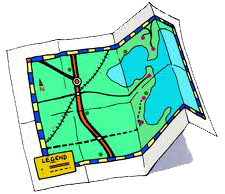 any cultures revere their dead. Genealogists, however, have taken that practice to a whole new level: unearthing documents, divining burial sites, and restoring photographs in an attempt to literally resurrect their ancestors.
any cultures revere their dead. Genealogists, however, have taken that practice to a whole new level: unearthing documents, divining burial sites, and restoring photographs in an attempt to literally resurrect their ancestors.
You've got to wonder what motivates people to research their family lines. In this case, it's a mixture of appreciation for – and curiosity in – the folks who came before. We were fortunate to have had loving parents and grandparents; their impact on our lives was incalculable. Their memories are worth preserving, and genealogy is one way to relive golden times with, and honor, them.
A few interesting realizations came with the research. First is that we come from humble stock. Our family tree is populated with laborers, farmers, butchers, carpenters, accountants, teachers, homekeepers, secretaries. No royalty, fame, or wealth in these branches. But they were courageous pioneers who struck out across the country, or across the ocean, to make a better living for themselves and their families. That speaks to character, rather than circumstance, as determining their outcome.
Second, as much as we'd like to honor the pioneer spirit in our ancestors, our family members were actors in the respective historical dramas playing out around them. Their choices and movements were largely determined by larger cultural forces at work: the Highland clearances, the large wave of European emigration to North America, the British Home Children placement in Canada, the rise of the automobile industry in Detroit, the disruption of the Second World War. Our family members were not independent agents, but rather a part of the mass of humanity carried along on the currents of world history.
Third, that the study of family history is all about intersections. One of the biggest questions in family lines is how, when, and where did our fathers and mothers meet? If not for those intersections the family lines would dead-end. It's the nexuses that give life to a family tree, and it's interesting to explore what decisions, what events, what geographic conditions led to the intersection of lives that resulted in additional branches on the family tree.
Fourth, all names are phonetic rather than literal in generations preceding ours. Get hung up on the 'One True Name,' and the family quickly exits the paper trail. The McCrie branch, for example, is variously documented throughout Scotland, Canada, and the United States as McCree, McCrea, McCrie, McCrai, and M'Crae. I soon realized that every grandparent or great-grandparent in the tree had the same variety in spelling: Schütze, Schuetze, Scheutze, Schutze; Livingston, Livingstone; Schrotzberger, Schratzberger; Estall, Estelle; Anthony, Anthoney. The name we inherit is as variegated as the tree it is named for.
Lastly, as we age we become aware that families are great rivers that flow through time, each person merely a short course of that river. We are affected by the waters upstream, and we affect the downstream community. We are not isolated; we are part of a bigger system, a great river called the family. Genealogy allows us to dive deeply therein.















